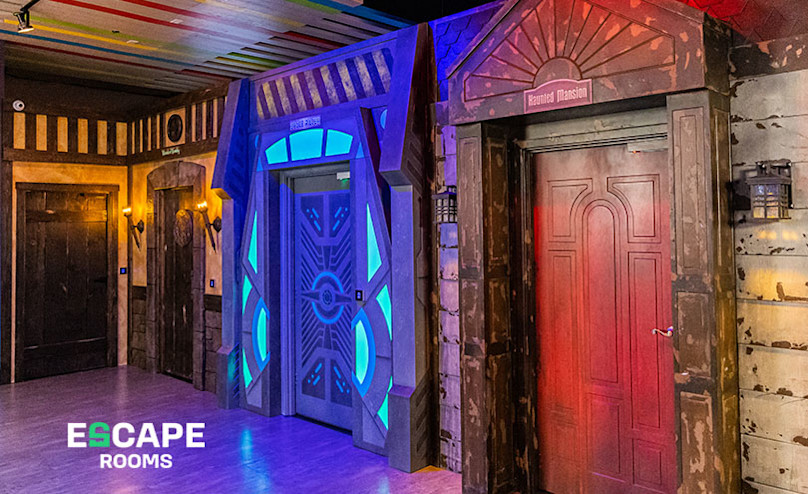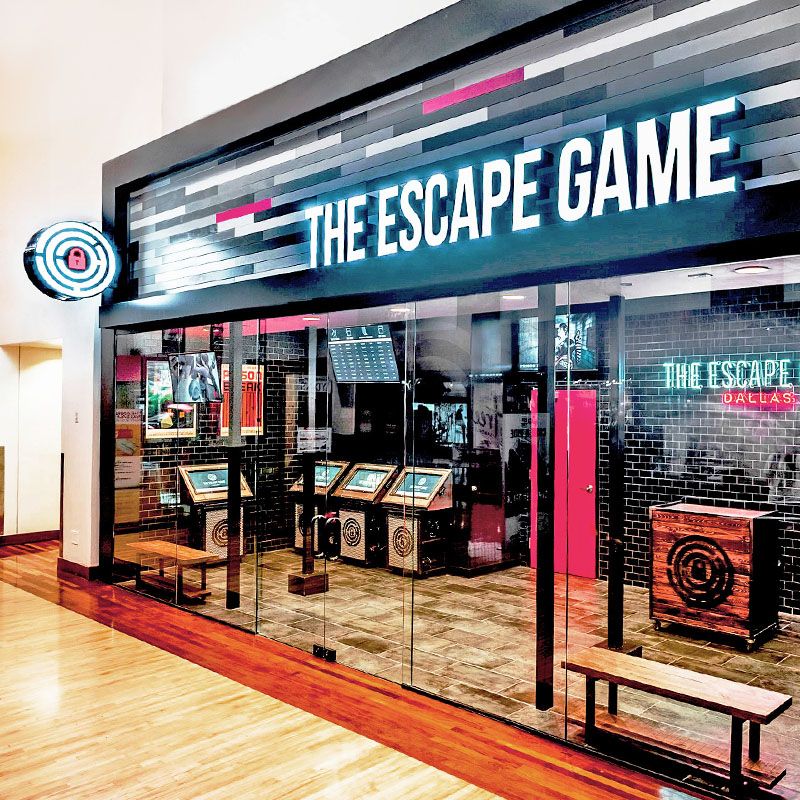Escape Room in Minneapolis-- A Perfect Task for Any Type Of Event
Escape Room in Minneapolis-- A Perfect Task for Any Type Of Event
Blog Article
Group Methods: Just How to Team up Efficiently in an Escape Space
Navigating the intricacies of an escape room requires greater than mere enthusiasm; it calls for a well-coordinated strategy based in clear communication, tactical role tasks, and adept time administration. Groups should actively pay attention to every participant's understandings, appoint roles that straighten with private strengths, and preserve regular check-ins to guarantee emphasis and avoid redundancy. By cultivating a setting that values cohesion and adaptability, teams can considerably enhance their performance and success rates. The subtleties of these techniques can change the experience, yet exactly how precisely can they be applied to take full advantage of the potential for success?
Establish Clear Interaction

To promote clear interaction, it is essential to assign a main factor of call for details dissemination. Short, focused updates from each group participant can keep the group informed without frustrating them with information.

Designate Functions Strategically
While clear communication establishes the foundation for effective team effort, assigning functions tactically makes sure that each staff member's toughness are utilized successfully. In a getaway area circumstance, the time-sensitive and intricate nature of challenges demands a well-organized approach to task delegation. By identifying and leveraging private expertises, teams can maximize their problem-solving capacities and boost overall efficiency.
Someone with a keen eye for information could stand out in discovering concealed things, while a rational thinker can be better suited to addressing challenges. This function commonly needs solid business and interpersonal skills.
Second, guarantee that functions are versatile and adaptable. As brand-new difficulties arise, the group needs to have the ability to pivot, reapportioning jobs as called for. This flexibility helps preserve momentum and stops traffic jams that might occur due to inflexible duty projects.
Eventually, a calculated approach to role job not just makes the most of the toughness of each group member but also cultivates a cohesive environment, driving the group towards a successful getaway.
Use Diverse Skills
Recognizing and utilizing the diverse skills within your group can considerably boost your efficiency in an escape area. Each employee brings distinct toughness to the table, and successfully leveraging these abilities can speed up analytic and boost total efficiency. For instance, an employee with solid analytical abilities could stand out at analyzing intricate codes or patterns, while one more with keen empirical capabilities might promptly identify surprise hints that others may forget.
Reliable interaction is essential to making use of these varied Learn More Here abilities. Urge staff member to voice their insights and ideas quickly, making sure that all prospective options are taken into consideration. This comprehensive technique cultivates a dynamic atmosphere where creativity and critical thinking can thrive. In addition, assigning jobs that line up with each participant's strengths can his explanation avoid traffic jams and guarantee that progression is constant.
Furthermore, variety in abilities frequently converts to diversity in thinking styles, which is important in an escape area setting. While some obstacles might need sensible thinking and accuracy, others could take advantage of imaginative and side thinking. By recognizing and leveraging this diversity, groups can attend to a more comprehensive series of challenges a lot more effectively, therefore boosting their chances of a successful retreat.
Manage Time Properly

Recognize noticeable puzzles and separate jobs based on team participants' strengths, ensuring that no one is still. This technique can help maintain the group focused and prevent time from slipping away unnoticed.
In addition, prevent one-track mind. If a problem is taking too long, revolve staff member or move on to one more obstacle, returning later with fresh perspectives. Communication is vital-- keep every person updated on addressed puzzles and staying tasks to article stay clear of repetitive initiatives.
Finally, make use of any tips or hints moderately however strategically - best escape room. Understanding when to request for aid can save useful time. By adhering to these time administration principles, groups can considerably boost their possibilities of a successful and delightful escape space experience
Debrief and Show
Reflection is a necessary aspect of group advancement and improvement in the context of getaway areas. Once the difficulty is completed, whether successfully or otherwise, it is crucial for the group to take part in a structured debriefing session. This process enables group participants to examine their performance, identify staminas, and pinpoint areas for enhancement.
Start the debrief by reviewing what went well. Highlight specific circumstances of reliable communication, problem-solving, and collaboration. Acknowledging these positive habits reinforces them and urges their rep in future difficulties.
Next, resolve the barriers experienced. Review moments of complication, miscommunication, or inefficient strategies. Motivate an open and useful dialogue where staff member can share their perspectives without concern of objection. This promotes a culture of continuous enhancement and discovering.
Conclusion
In verdict, effective collaboration in a retreat room is based upon clear interaction, critical role jobs, the effective application of varied skills, and proficient time administration. By creating a cohesive and flexible team setting, the likelihood of effectively fixing challenges and attaining the objective of running away the room is significantly improved.
Report this page